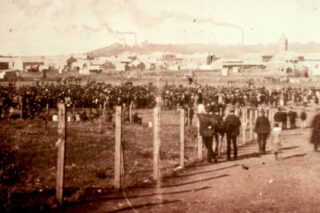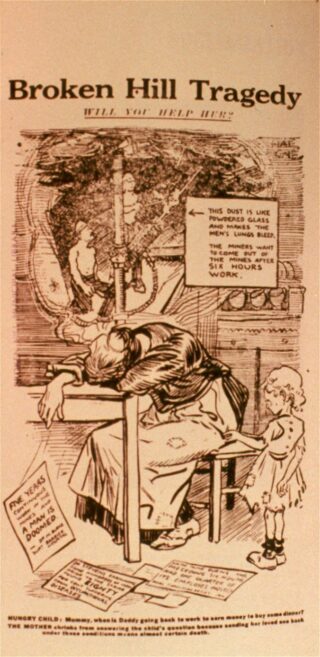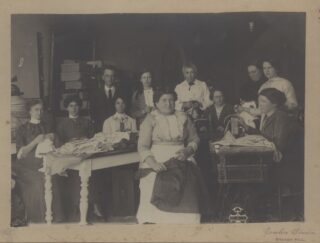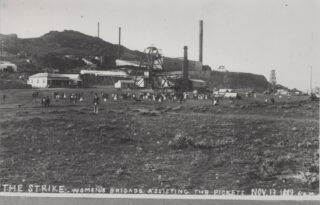- Entry type: Event
- Entry ID: AWE4102
Broken Hill Strikes
- 'Big Strike' (1919)
'The Lockout' (1909)
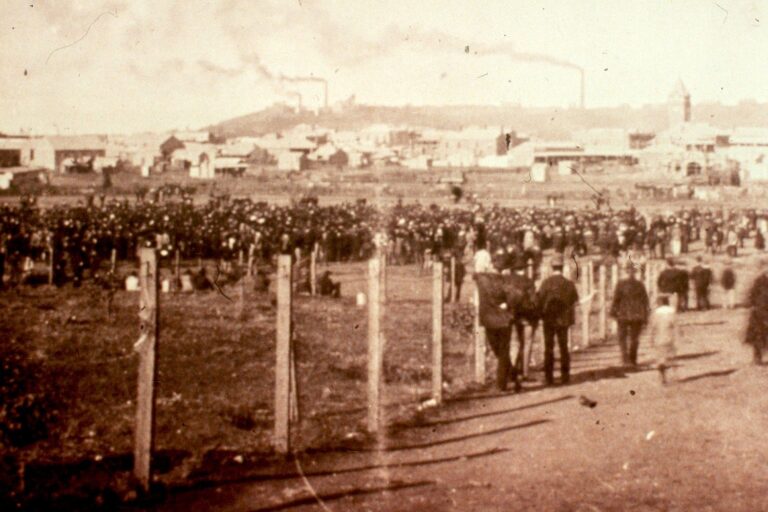
Summary
Between 1889 and 1920 miners at Broken Hill took part in four major strikes, always with the strong support of Broken Hill women. In 2001, a memorial was erected in the centre of the city to acknowledge the role of women in the development of the city and particularly in the resolution of industrial disputes.
Details
The women of Broken Hill played a pivotal role in the strikes that shaped the unique industrial history of Broken Hill, offering physical and moral support to their mining fathers, husbands, brothers and sons. The first major industrial dispute erupted in November 1889 when trade union members refused to work with non-unionists. It lasted a week. Women were active in street demonstrations and assisted in picketing the mining leases. They formed a Women’s Brigade open to “all matrons and maids who are in sympathy with the union” in order to “do something towards supporting the men now on strike”. At the Brigade’s first meeting on the 12th November, the women decided on a swift and unanticipated course of action, descending upon the strike-breakers that very evening. Reports tell of a 400-strong party of women who, armed with washing sticks, brooms and mops, attacked non-unionists and left tents raided and torn in their wake.
Women played a similarly influential role in the major strike of 1892, sparked by a decision on the part of several mining companies to introduce a contract system for ore excavation. Women were numerous among the estimated ten thousand protestors who congregated at the Broken Hill Proprietary mine office on August 25. Once again they participated in street marches and joined union picket lines, preventing strike-breakers from entering the mines.
During prolonged industrial struggles women bore the brunt of increasingly difficult household duties, exacerbated by food shortages and the lack of income. During the five-month 1909 Lockout, the first industrial dispute to take place in Broken Hill for sixteen years, women formed a Relief Committee to help those struggling to feed and clothe their families. The ‘Big Strike’ that lasted 18 months from 1919 to 1920 was an extremely trying period. Co-operative depots were established by the unions, supplying housewives with basic food such as bread, margarine, potatoes and onions. Many mothers saw their children suffer from malnutrition. Miscarriages due to poor diet and anxiety were common. The Big Strike was the last major strike that the women of Broken Hill had to endure. It was finally called off on 10 November 1920 after both the unions and mine managers agreed to the recommendations made by the President of the New South Wales Industrial Court, Justice Edmunds.
This entry was prepared and written by Georgia Moodie.
Digital resources
Published resources
- Book
- Thesis
-
Site Exhibition
- Unbroken Spirit: Women in Broken Hill, Australian Women's Archives Project, 2009, http://www.womenaustralia.info/exhib/bh/bh-home.html
